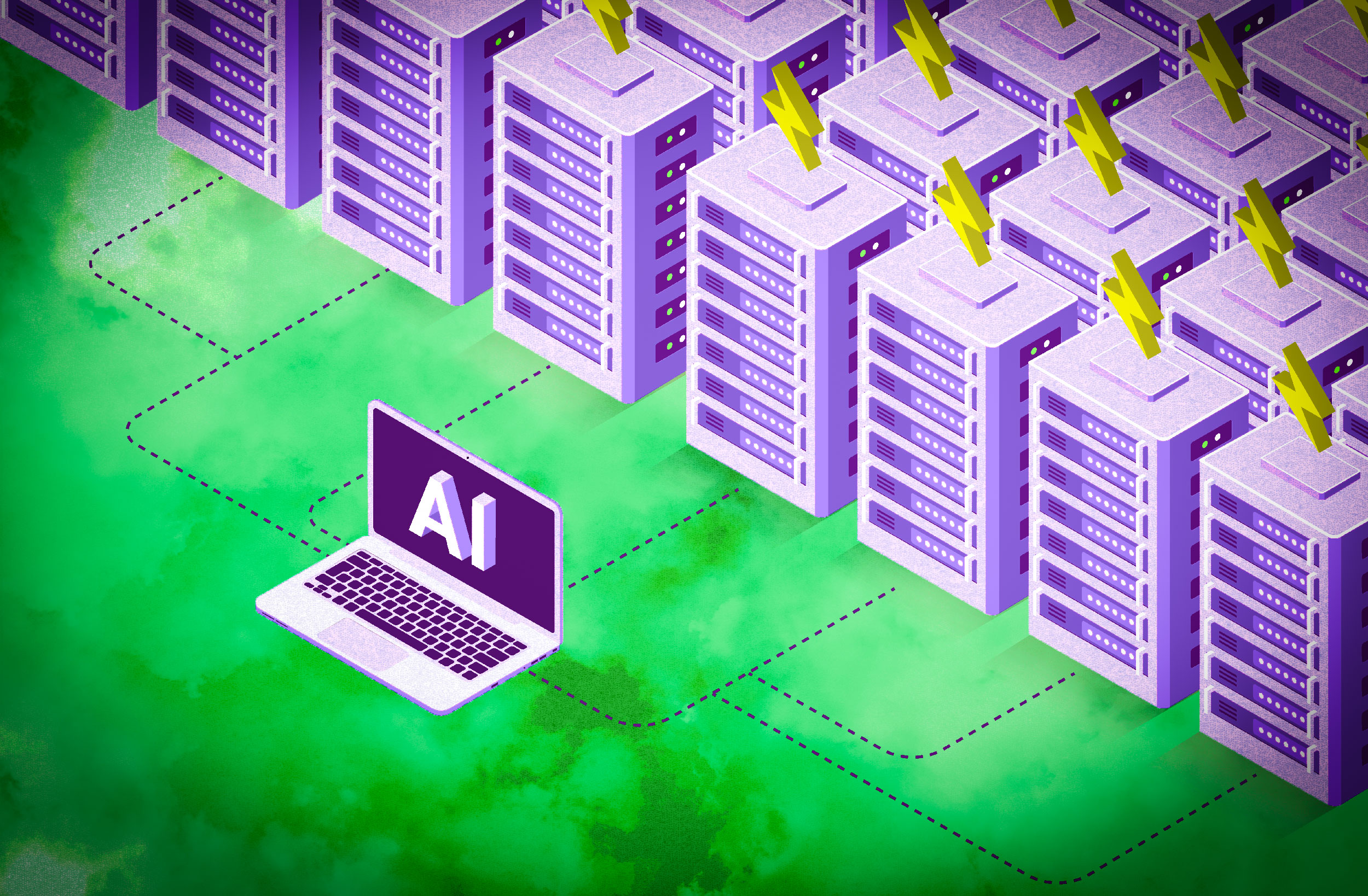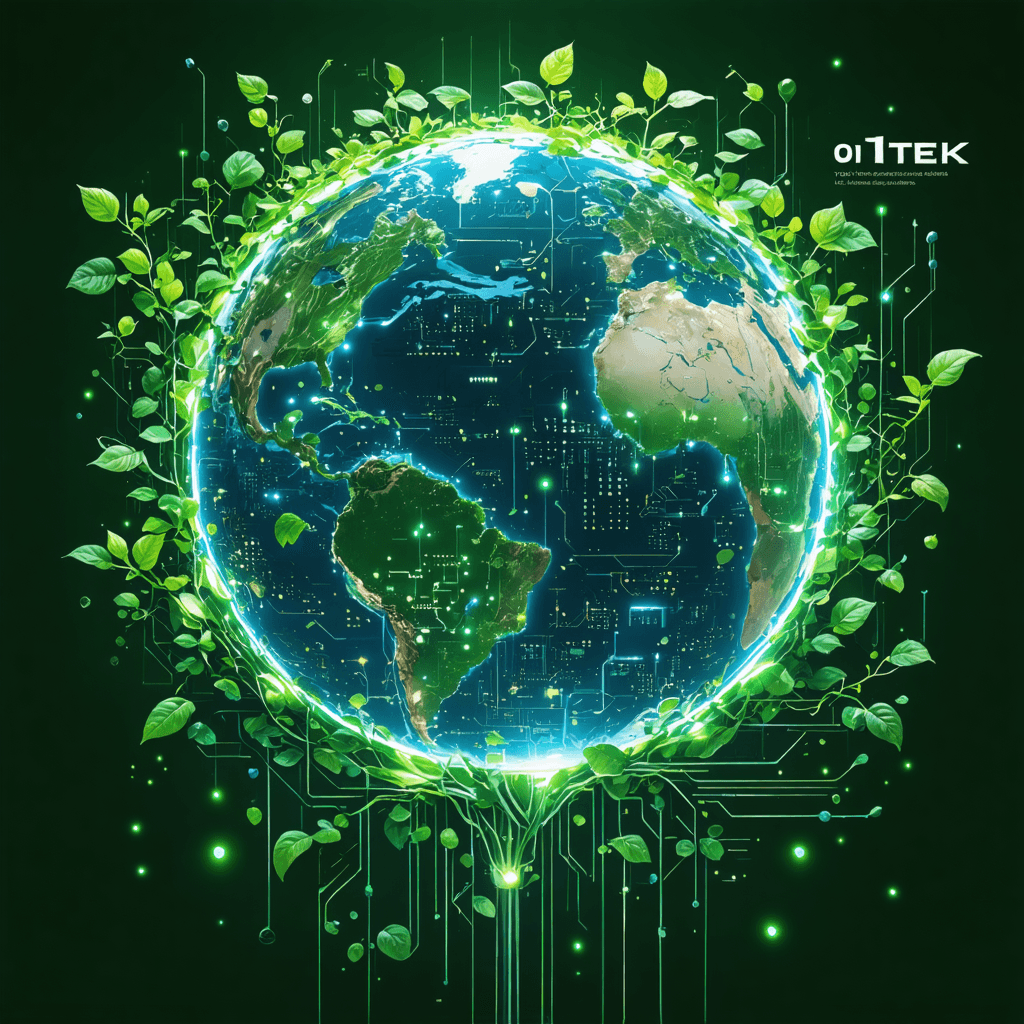AI's Green Footprint: Balancing Innovation and Earth's Future in the Age of Intelligent Systems
In an era where artificial intelligence is reshaping our world, a critical conversation is emerging about the environmental consequences of our digital revolution. The rapid advancement of AI technologies brings unprecedented opportunities but also raises important questions about sustainability and environmental responsibility.
The Hidden Environmental Cost of AI

The environmental footprint of AI is more significant than many realize. According to recent MIT research, the electricity demands of data centers – the backbone of AI operations – have become a major contributor to global carbon emissions. Training a single large language model can consume as much energy as 5 American households use in an entire year.
Understanding the Challenge
The environmental impact of AI manifests in several key areas:
Energy Consumption: Data centers powering AI systems require massive amounts of electricity. Recent studies show that AI-related computing could account for up to 3.5% of global energy consumption by 2030.
Carbon Emissions: Despite improvements in efficiency, many data centers still rely on fossil fuels. According to 2025 data, the AI industry's carbon footprint is comparable to that of the aviation sector.
Electronic Waste: The constant need for hardware upgrades and replacements generates significant e-waste, with AI accelerators having shorter lifecycles than traditional computing hardware.
Innovation in Green AI

The tech industry is actively working to address these challenges. Google has reported a 12% reduction in data center emissions in 2024 compared to the previous year, through innovative cooling systems and AI-optimized energy management. Companies are implementing several promising solutions:
1. Energy-Efficient Architecture
- Development of specialized chips that require less power
- Implementation of liquid cooling systems
- Use of AI itself to optimize data center operations
2. Renewable Energy Integration
- Investment in solar and wind power facilities
- Power Usage Effectiveness (PUE) optimization
- Strategic data center location near renewable energy sources
3. Sustainable Hardware
- Extended hardware lifecycles
- Recyclable components
- Reduced rare earth mineral dependence
Best Practices for Sustainable AI
Organizations can adopt several strategies to minimize their AI environmental impact:
Efficient Model Design
- Use smaller, more efficient models when possible
- Implement model pruning and compression
- Optimize training procedures
Green Infrastructure
- Choose cloud providers with strong environmental commitments
- Monitor and optimize resource usage
- Implement energy-efficient cooling solutions
Responsible Development
- Consider environmental impact in AI project planning
- Use carbon-aware computing practices
- Regular environmental impact assessments
The Path Forward

The future of AI must balance innovation with environmental responsibility. Recent breakthroughs in sustainable computing architecture suggest that we can achieve both. Amazon Web Services reports that their newest data center components reduce mechanical energy consumption by up to 46% while cutting concrete-related carbon emissions by 35%.
Industry Commitments
Major tech companies are making significant commitments to sustainable AI:
- Microsoft pledges carbon negativity by 2030
- Google aims for 24/7 carbon-free energy operations
- Amazon's commitment to net-zero carbon by 2040
Conclusion
The environmental impact of AI is a challenge that requires immediate attention but also presents opportunities for innovation. By implementing sustainable practices and leveraging green technologies, we can ensure that the AI revolution contributes to, rather than detracts from, our planet's future.
Ready to learn more about sustainable AI practices and green computing? Explore our comprehensive courses and resources at 01TEK, where we're committed to training the next generation of environmentally conscious tech professionals. Join us in shaping a sustainable future for artificial intelligence.
Sources: 1. MIT News 2. UNEP Report 3. Google Sustainability 4. MIT Sloan 5. Forbes Analysis
If we don’t allow ourselves to make mistakes, we will never invest in things that are radical.
Jeff Clavier



